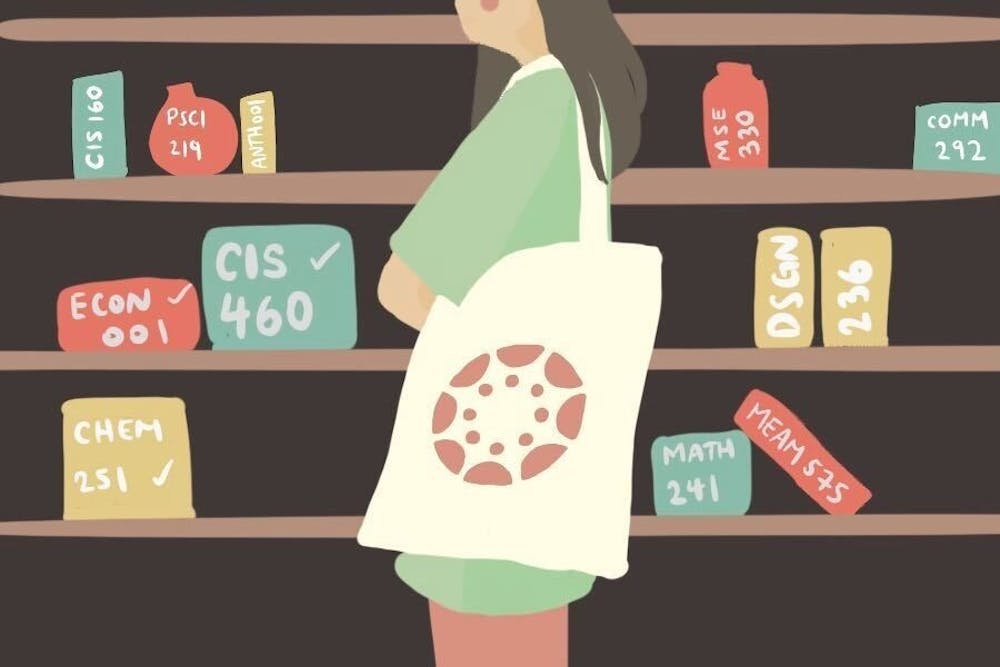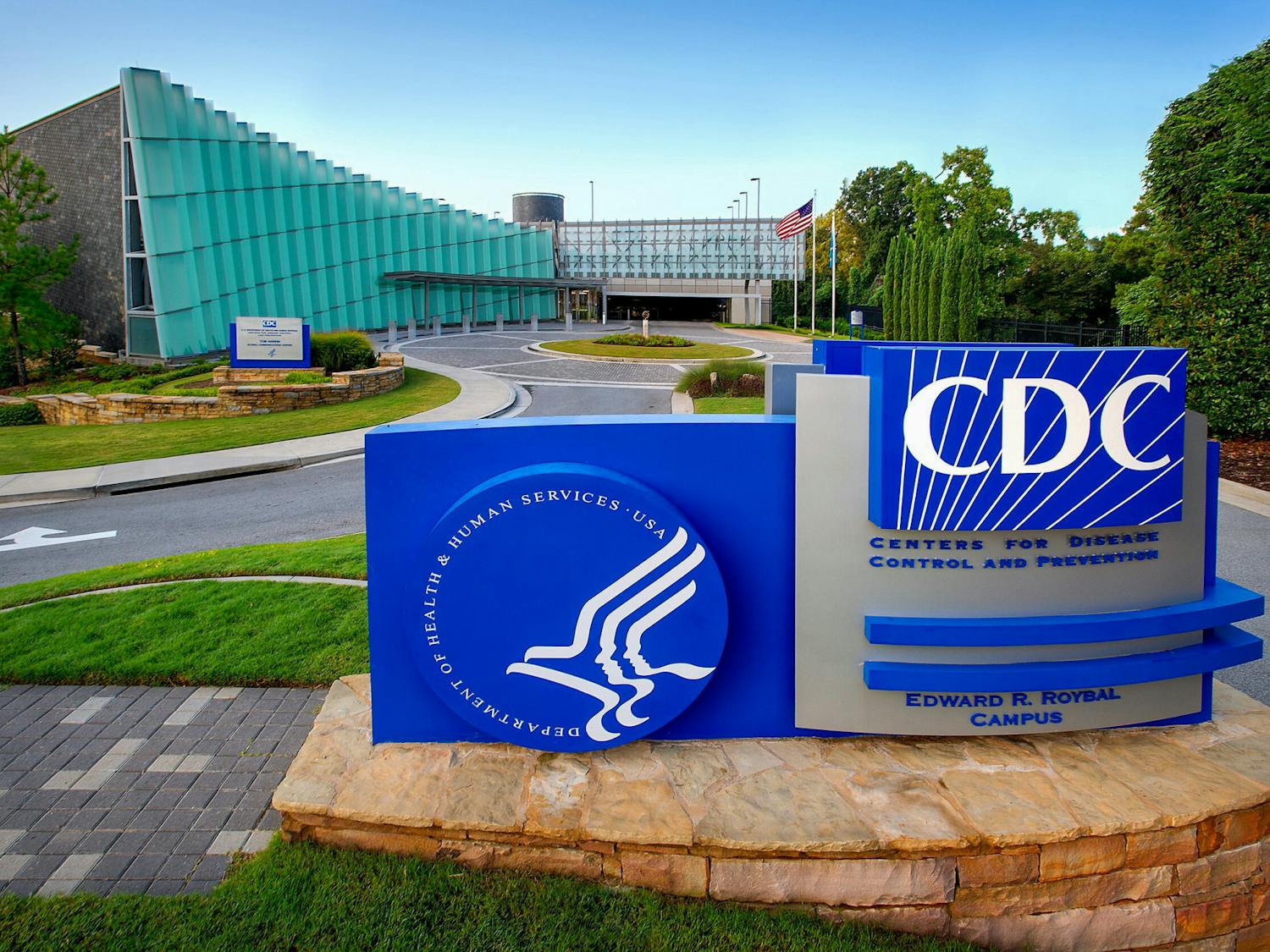Penn will offer completely virtual classes this summer, and the roster will have more variety and seats available than in a typical year.
The University will offer over 100 summer undergraduate courses in the School of Arts and Sciences, seven in the School of Engineering and Applied Sciences, and 10 in The Wharton School. This summer, as in a typical year, students have the option to register for either the full 11-week session, from May 24 to Aug. 6, or for the two five-and-a-half week sessions, which run from May 24 to Jun. 30, and Jul. 1 to Aug 6.
Director of Certificate and Non-Degree Programs Jaime Kelly said that the roster of summer courses is between the sizes of a normal year’s availability and the summer 2020 roster. Though all on-campus summer courses and programs were canceled during the summer 2020 session, Penn Summer experienced ”incredible interest” in virtual summer courses last year with over a 70% increase in enrollment, which had prompted it to add more than 300 extra seats in different courses in summer 2020.
Though Kelly said that enrollment numbers for the semester are not yet available, as course registration is open until May 10, she said that 420 course requests have already been submitted for this session. Kelly added that many of her colleagues at “Ivy Plus” schools — a term which includes the eight schools in the Ivy League and others with similar rankings and prestige — have predicted greater enrollment numbers for their upcoming summer sessions, adding that there is a possibility that Penn may experience that as well.
Russell Composto, Assistant Dean for Undergraduate Education in The Engineering School, clarified that the final roster is still subject to change and that more data science and artificial-intelligence-related courses may still be added. Kelly also said that additional demand could result in classes being added to the SAS course list.
“The planning for this summer reflects the successes all schools and programs had in offering online summer courses last year, balanced with an awareness of the current status of the evolving pandemic,” Deputy Provost Beth Winkelstein wrote in an emailed statement to The Daily Pennsylvanian. “We continue to plan for the safest, most meaningful and highest quality education – and are proud of the creative and flexible approaches our faculty and students are taking to balance these goals.”
Kelly said that the administration used a “wish list” to ascertain which courses students wanted to take in the summer, as well as a survey of undergraduate students and visiting high school students conducted by Penn Summer. Even before the decision to make all classes virtual was made, Kelly said that the roster Penn Summer presented the academic departments with was partially online for accessibility purposes.
“This year, we actually went to the departments with the classes we wanted, and the timeframe we'd like them to occur,” Kelly said. “Even if the coronavirus numbers got a lot better, and there were massive vaccinations, we thought, ‘There are still students that aren't here, and we want to serve them as well.'"
RELATED:
Penn to recruit Asian American Studies profs. following concerns over lack of program support
Bryn Mawr and Haverford announce plans for return to in-person learning this fall
Penn Abroad offers virtual internships, giving students cross-cultural training at home
After navigating one year of the pandemic and one fully online summer session in 2020, Kelly and Composto said that they have learned more about what instruction formats do and don't work for students, and have since worked to accommodate a wide variety of students' needs.
For Composto, a major takeaway from the previous online sessions last year has been to not overload students with too much content. Many professors did “maybe too good of a job” of providing extra videos and material for students even when it was optional, she said, which led to an increased workload.
“We learned our lessons perfectly from last fall to kind of reduce the load – less is better, less is more,” Composto said. "I think we're taking that into the summer as well.”
A major focus for Penn Summer this session, Kelly said, is working with instructors to find the best way to deliver their classes to students. She mentioned that while students often prefer to have some asynchronous components in their classes in order to better fit with their schedules and adapt to various time zones, students and instructors alike still prefer to have some opportunities to connect in a partially synchronous format.
Kelly added that she believes the student experience this summer will be more similar to the fall 2020 and spring 2021 semesters, because student resources such as libraries and offices have had time to adapt to the virtual atmosphere and accommodate student needs.
While Kelly and Composto said they do not anticipate the fully virtual summer experience continuing after the COVID-19 era, Composto mentioned that there is definitely an interest in discussing and continuing virtual offerings in future summer sessions in efforts to increase accessibility for students.
Equity is also an important aspect of accessibility to keep in mind even when enrollment numbers are high, Composto said. He emphasized that Penn Summer courses should not be an option only for students of means, and said that Student Financial Services has been accommodating in providing aid to students who need to catch up.
Composto and Winkelstein ultimately stressed that faculty had been flexible and willing to take on greater teaching responsibilities throughout the pandemic — along with Kelly, they expressed optimism for this year's session.
"I actually think that we are feeling pretty confident this summer about how these courses will go over the summer sessions, because I think we've had a lot of experience," Kelly said.









